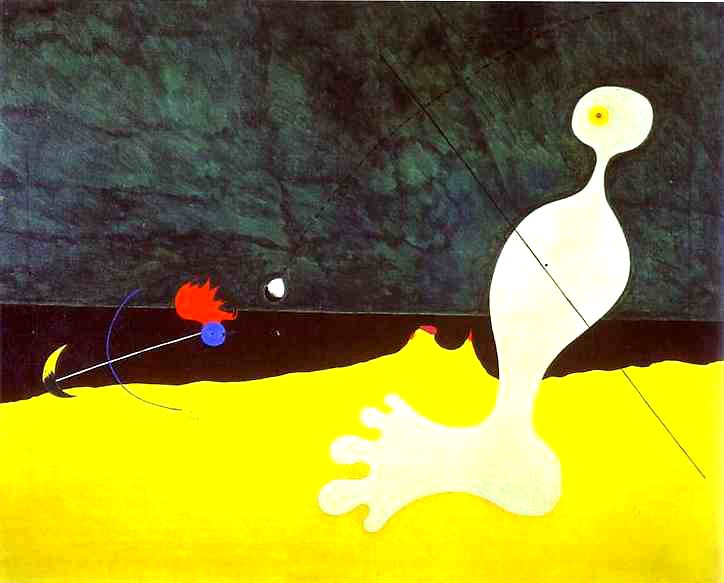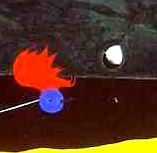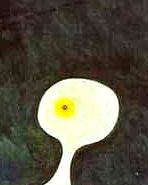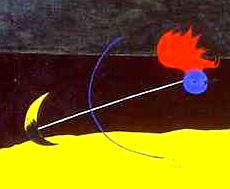
We take a stand to protect children from pain and injustice
By Fiorella Capasso,Fiodanice-Cultures en dialogue
October 2020

We leave behind us a summer in which the sun went out several times, in which the principle of “Everything is connected” did not apply, as in a short circuit, leaving us breathless, with a numb heart, resonating with that of the tormented little bodies of two children[1], one of them not even two years old, the other one four years old, with different social origins, but, despite all appearances, with the same early solitude of the soul[2].
Our mind immediately ran to the verse[3] “Listen, how your heart pounds inside of me” …because “the poet is the faithful brother of all connections”[4].
We saw them moving from the silence of a deaf world, that lives with headphones on, to the clamor and noises of the national media scene in a flash. Let’s make sure we do not fall into the usual “much ado about nothing”[5]. Those children have already died from an excess: the youngest one from too little love and the other one, paradoxically, from too much “dedication”.
Their lives came to an end because of their families, but not only. Mercy and respect order us to abstain from judging those families. We imagine them now, overwhelmed by the consequences of a personal and intergenerational inability to find the “appropriate measure” of Good[6] in love, that is neither too much nor too little, just enough to recognize and contain the evident and/or silent pain of one’s children or grandchildren.
Leave the newborn in peace.
Leave room for them to live.
Don’t think for them.
Don’t read them the same book.
Let them discover the dawn
and name their own kisses[7].
The family and social misfortunes that those two little innocents experienced concern us all, adults of a generation incapable of or unable to control the effects of some sort of gray violence that comes from afar[8]. Like a toxic cloud – which COVID only had the “merit” of highlighting[9] – it is spreading in this age of restlessness[10], uncertainty[11] and globalization of indifference[12], deaf to the pain and blind to the injustices that affect the most vulnerable. For this reason, Pope Francis tirelessly calls us to “heal the world and prepare the future together with Jesus who saves and heals”:
effects of some sort of gray violence that comes from afar[8]. Like a toxic cloud – which COVID only had the “merit” of highlighting[9] – it is spreading in this age of restlessness[10], uncertainty[11] and globalization of indifference[12], deaf to the pain and blind to the injustices that affect the most vulnerable. For this reason, Pope Francis tirelessly calls us to “heal the world and prepare the future together with Jesus who saves and heals”:
“A small virus continues to cause deep wounds and to expose our physical, social and spiritual vulnerabilities. It has laid bare the great inequality that reigns in the world: inequality of opportunity, of goods, of access to health care, of technology, education: millions of children cannot go to school, and so the list goes on. These injustices are neither natural nor inevitable. They are the work of man, they come from a model of growth detached from the deepest values. The waste of leftover food: with that waste one can feed everyone. And this has made many people lose hope and has increased uncertainty and anguish. This is why, to emerge from the pandemic, we must find the cure not only for the coronavirus – which is important! – but also for the great human and socio-economic viruses. They must not be concealed by whitewashing them so that they cannot be seen. And certainly we cannot expect the economic model that underlies unfair and unsustainable development to solve our problems. It has not and will not do so, because it cannot do so, even though some false prophets continue to promise the ‘trickle-down effect’ that never comes”[13].
 We live in a world that runs at a “too fast” pace, to the point that it hides reality from us: we risk being caught up in a pervasive and fragmented cultural and structural inertia[14] that blocks people, organizations and systems, that undermines life and generates feelings of loss, resignation, or angry frustration. The uninterrupted acceleration of change in humanity and in the planet – as Pope Francis also stresses[15]– today adds to the intensification of our pace of life and work, often bewildering. Although change is part of the dynamics of complex systems, the speed at which it happens nowadays, induced by our actions, goes against the natural slowness of biological and cultural evolution. If acceleration, through saturation, leads directly to the disintegration and erosion of our social relations, it is no wonder that, at some point, we begin to feel alienated from our own actions, deprived of the ability to resonate, to feel ourselves, the other, the world.
We live in a world that runs at a “too fast” pace, to the point that it hides reality from us: we risk being caught up in a pervasive and fragmented cultural and structural inertia[14] that blocks people, organizations and systems, that undermines life and generates feelings of loss, resignation, or angry frustration. The uninterrupted acceleration of change in humanity and in the planet – as Pope Francis also stresses[15]– today adds to the intensification of our pace of life and work, often bewildering. Although change is part of the dynamics of complex systems, the speed at which it happens nowadays, induced by our actions, goes against the natural slowness of biological and cultural evolution. If acceleration, through saturation, leads directly to the disintegration and erosion of our social relations, it is no wonder that, at some point, we begin to feel alienated from our own actions, deprived of the ability to resonate, to feel ourselves, the other, the world.
 Let us not let the wave of pain and despair that swamped us this summer fall into nothing. We are challenged to find a meaning in it and turn it into a source of life. We are compelled to radically transform[16] our way of living, of thinking, and our models; compelled to renew individual and collective responsibilities in everyday life, aiming, as Pope Francis again suggests, in harmony with the human and social sciences[17], to “not occupy spaces but activate processes”…because reparative justice[18] generates processes[19] that are inclusive and respectful of human rights. We are compelled, tied in a network, allied to other public and private actors, willing to imbue social protection policies and practices with cooperation rather than competition, because…”we are all on board“[20].
Let us not let the wave of pain and despair that swamped us this summer fall into nothing. We are challenged to find a meaning in it and turn it into a source of life. We are compelled to radically transform[16] our way of living, of thinking, and our models; compelled to renew individual and collective responsibilities in everyday life, aiming, as Pope Francis again suggests, in harmony with the human and social sciences[17], to “not occupy spaces but activate processes”…because reparative justice[18] generates processes[19] that are inclusive and respectful of human rights. We are compelled, tied in a network, allied to other public and private actors, willing to imbue social protection policies and practices with cooperation rather than competition, because…”we are all on board“[20].
From the two events in Sicily that we have recalled, we understand that we have so many responsibilities to share and so many experimentations to launch or consolidate in order to “govern” the pain[21]. Listening is not enough. The pain that is permeating collective life is widespread, layered, often hidden and complex. “Governing pain” does not just mean managing the situations or emergencies that have to do with it; it also means correcting the policies and devices that produce it. From this point of view, pain becomes, despite its negativity, a valuable tool for repairing and reconfiguring projects and processes, to unmask each time the inhumanity that they explicitly contain, or indirectly elicit.
many experimentations to launch or consolidate in order to “govern” the pain[21]. Listening is not enough. The pain that is permeating collective life is widespread, layered, often hidden and complex. “Governing pain” does not just mean managing the situations or emergencies that have to do with it; it also means correcting the policies and devices that produce it. From this point of view, pain becomes, despite its negativity, a valuable tool for repairing and reconfiguring projects and processes, to unmask each time the inhumanity that they explicitly contain, or indirectly elicit.
This is our objective, after a summer in which the sun has gone out several times, during which we heard a song rising, inside of us.
Those whose hearts do not hurt
as they see my sorrow
Shall go sighing in the valleys
among the gloomy horror.
The good in me, my father, my kingdom
were stolen by the ignoble fate.
Mighty Gods, if you are just,
put an end to my pain[22].
[1] We are referring to two events that took place in Sicily in August: the first, in Modica, is the story of a 21-month-old child who literally died from beating, at the hands of the partner of his young mother, who was paralyzed in a “silent connivance”, tolerating the bossy attitude of the man with whom she lived. The beatings and ill-treatment went on for a long time, despite the fact that the household was assisted by the social services and different public prosecutor’s offices were interested in the case. The second story is that of a child from Caronia who disappeared, together with his mother – who had been suffering from psychological problems for a long time, exacerbated by the coronavirus lockdown and repeatedly denied by so many and at so many levels – in circumstances that still today remain mysterious. As are the causes of the death of both of them, but especially of the child: one month after his death, only some remains were found, desecrated by wild animals as well as by inaccurate and disconnected investigations.
[2] See Eugenio Borgna, La solitudine dell’anima (The solitude of the soul), 2011; Zygmunt Bauman, The solitude of the global citizen, 2000.
[3] See Wislawa Stimborska, Nobel Prize in Literature 1996, Any case.
[4] See Hugo von Hofmannsthal (1874-1929).
[5] Title of a comedy by William Shakespeare from 1598.
[6] The appropriate measure is the key to justice and to a happy life according to Plato, and it has social repercussions, but also individual and community consequences.
[7] Pablo Neruda (Parral, July 12, 1904 – Santiago de Chile, September 23, 1973) Chilean poet, politician and diplomat.
[8] Since, between the nineteenth and twentieth centuries, the idea of the primacy of reason, of a universal rationality with which we welcomed modernity in the seventeenth century, went into a crisis.
[9] Pope Francis at the General Audience of Wednesday, 30 September: “In recent weeks we have reflected together, in the light of the Gospel, on how to heal the world that is suffering from a malaise that has been highlighted and accentuated by the pandemic. The malaise was already there: the pandemic highlighted it more, it accentuated it.”
[10] See Aldo Giorgio Gargani, Inquietudine (Restlessness), in Una Mappa dei sentimenti, 2009.
[11] See Salvatore Veca, Dell’incertezza (On Uncertainty), 1997; Zygmunt Bauman, Living in an Age of Uncertainty, 1999.
12 Pope Francis.
[13] Pope Francis at the General Audience of Wednesday, 30 September.
[14] See Hartmut Rosa, Alienation and Acceleration, 2010; Amitav Ghosh, The Great Derangement, 2016.
[15] Laudato Si, 18.
[16] One of the themes of the current journey toward the 31st Congregational Chapter 2021.
[17] See Richard Norman, Reframing business, 2001.
[18] Redistributive justice concerns the resources to be distributed as fairly as possible, and the quality of human relations lies at the heart of reparative justice.
[19] See Salvatore Veca, La priorità del male e l’offerta filosofica (The priority of the evil and the philosophical offer), 2005.
[20] Even before becoming the theme of the fifth Day of Remembrance and Reception celebrated on October 3rd , this was a famous aphorism by Blaise Pascal (1623-1662), French mathematician, physicist, philosopher and theologian, author of Thoughts, written in defense of the Christian faith.
[21] See Sergio Natoli, La politica e il dolore (Politics and pain),
[22] From the work Merope by Riccardo Broschi (1698-1756), better in the version of the soprano Simone Kermes (Simone Kermess “Chi non sente al mio dolor”). Original Italian version: “Chi non sente al mio dolor / qualche affanno dentro al core / vada pur tra foschi orror / tra le valli a sospirar. / Il mio ben, il padre, il regno / mi ha repito il fato indegno. / Sommi Dei, se giusti siete, / fin ponete al mio penar.”
Joan Mirò
Person throwing a stone at a bird, 1925
